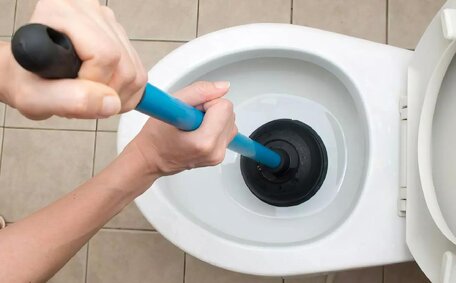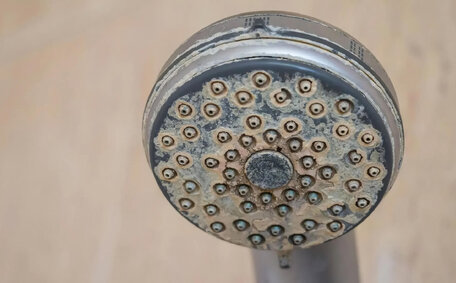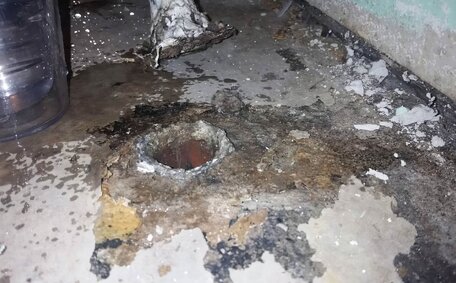Introduction: Causes and prevention of blocked drains
Blocked drains frequently trouble rental properties, usually due to accumulations of hair, food scraps, grease, and other debris. Incorrectly disposed wet wipes and sanitary products also provoke clogs.
Preventing blockages requires diligence from both landlords and tenants. Tenants should be mindful not to let fat, oil, or substantial food items block the drains. Property owners must maintain drains and pipes, ensuring prompt clearing of blockages and routine care.
When it comes to tackling a blocked drain, it’s important to determine who is responsible—blocked drain responsibility may fall on property owners or tenants for unblocking and repairing. Responsibility often hinges on the blockage’s cause and stipulations in the tenancy agreement and residential tenancy laws.
Defining key responsibilities of landlords and tenants
When maintaining rental properties and faced with challenges such as blocked drains, defined obligations rest on both the tenant and the landlord. The delineation of responsibilities between landlord and tenant regarding blocked drains is as follows:
Landlords
Landlords must address blockages and ensure the drainage system within the property functions correctly:
- Ensuring that all drainage systems and drain covers on the property are in top working order at the commencement and during tenancy
- Performing essential repairs and maintenance for obstructions due to structural issues, pipe malfunctions, or wear and tear
- Organising urgent solutions for blocked toilets, sewer back-ups or critical failures within the hot water system
- Clearing blockages caused by tree roots infiltrating the blocked drains your property or stormwater systems within property boundaries
- Covering the cost for a plumber to manage repairs if blockages result from faults in the drainage system
Tenants
Tenants are usually accountable for blockages resulting from their actions:
- Disposing of waste correctly to prevent blocked drains and avoiding the disposal of fat, oil, or non-biodegradable items down the sink
- immediately notifying the landlord about any blocked sinks or drains
- Covering the expenses if the drain blockages that result from the tenant’s misuse of the plumbing system
- Paying for emergency plumbing repairs caused by the tenant’s actions or those of their guests
Issues can arise if the specific cause of a blocked drain is unclear, leaving who is responsible for blocked drains in question. Discussions about who responsible blocked drain incidents lie with may necessitate referring to the tenancy agreement and consulting with your landlord, real estate agent, or advice services.
When is the landlord responsible for clearing a blocked drain?
Generally, landlords are obliged to address blocked drains arising from inherent faults in the property’s plumbing.
Examples of such blockages include:
- Tree roots encroaching into exterior wastewater pipes or sewer drain systems
- Collapsed or damaged drain lines under the property
- A common cause of blocked drains is the build-up of grease, soap, or residue in pipes, typically due to insufficient maintenance
- Failures of the drainage infrastructure due to normal wear and tear
Landlords are required to rectify blockages that arise from underlying plumbing issues, unless tenant misuse is evident, by hiring a professional plumber.
Landlords must ensure their property’s plumbing is in good working order, as prescribed by most residential tenancies act guidelines. This entails conducting the necessary repairs and maintenance on underlying issues that could result in blockages.
However, Proving tenant negligence is tough, but once established, landlords may recover costs for repairing issues like a blocked sewer drain.
When is the tenant responsible for a blocked drain?
Tenants bear responsibility for drain blockages clearly linked to misuse or negligence. This encompasses scenarios where negligence or misuse can cause blocked drains:
- Food, grease, or non-biodegradable items like wet wipes were disposed of improperly flowing down your pipes to create blockages
- Foreign objects like toys, and in some cases, even other materials than toilet paper, were flushed causing disruptions
- Damage occurred due to reckless tenant behaviour
Essentially, if the tenant’s actions directly led to the blockage, they may have to cover the cost of repairs and drain cleaning. This is especially the case if repeated misuse of drains was involved after warnings from the landlord.
As tenant responsibilities under residential tenancy laws include avoiding intentional or negligent property damage, tenants must pay for the clearing of avoidable clogs they have created.
When the cause of a blockage is uncertain, linked to normal wear and tear, or plumbing issues, landlords must fulfil their repair and maintenance duties.
What to do when you have a blocked drain
If you discover a blocked drain in your apartment and you’re the tenant of the property, here is who should be notified when comes blocked and what you need to know:
- Assess where the blockage is causing an issue in your property - a problem fixed here could prevent bigger headaches, such as slow-draining showers, bathtubs and toilets. See if water is draining slowly or pooling.
- Use a plunger to try to temporarily resolve issues like a leaking tap by dislodging the clog.
- Avoid using additional plumbing fixtures if a drain becomes noticeably slow or totally blocked.
- Contact your landlord or property manager immediately to ensure that repairs are initiated without delay.
- Consider actions to address the cause if the clog originated from items you or your guests introduced to the drain, and be ready to disclose this information.
- Responsibility lies with your landlord to arrange for a licensed plumber to address and clear the blockage. You should provide access and any pertinent details that may have led to the blockage.
- Should the plumber determine that your actions caused the blockage, you will be expected to cover the repair costs. If not, the landlord will typically bear the expense.
- Discuss the best way to implement preventive measures with your landlord and learn how to properly dispose of waste.
Quick action and adhering to proper protocols when a blockage occurs within the drains can ensure maintenance issues are resolved effectively.
Immediate steps tenants can take
It’s important to note that while a blocked drain ultimately requires professional repair, tenants can attempt some temporary solutions after notifying their landlord about the issue:
- Try using a plunger on the kitchen sink, tubs, or shower drains your skills may be enough to dislodge minor clogs
- Carefully pour hot water down the drain to tackle grease or hair blockages
- Use a drain snake or wire coat hanger to loosen debris caught in fixtures
- Mix 1/2 cup baking soda with 1/2 cup vinegar, pour down drain, and cover for 30 minutes before rinsing with hot water
- Stop using water in areas affected by clogs to prevent exacerbating the blockage
While these tips may provide temporary relief for simple clogs, blocked drains can necessitate professional drain clearing services arranged by landlords for major issues within the wider wastewater system.
Contacting your landlord about the issue
Discovering a blocked drain necessitates immediate contact with your landlord or property manager to report it, detailing the problem and affected drains to facilitate next steps. Take photos if possible to get a clear record of the problem.
Furnish your landlord with detailed accounts of events preceding the blockage discovery. Provide honest information if you may have contributed to the blockage by putting inappropriate items down drains or fixtures. However, also note any structural or ongoing drainage issues you have noticed.
Inquire about the process for engaging a licensed plumber for blockage inspection and clearance, and offer access if required by your landlord. Reconfirm who will cover the costs based on causation that is determined.
Make sure to get updates from your landlord on the scope of work needed and what repairs or further preventative steps are being taken. This open communication is part of the landlords responsibility to ensure the issue can be addressed fairly for all parties.
Understanding legal implications and rights
Tenants hold specific legal rights for urgent plumbing repairs under their lease agreement until its conclusion. If a blocked drain or sewer is causing uninhabitable living conditions, tenants can arrange for urgent repairs themselves and recover costs up to $1000. landlords can’t unreasonably delay or withhold consent for urgent repairs that need to be carried out, potentially affecting the end of the lease terms.
For less urgent problems, tenants are encouraged to connect with landlords or reach out to the local council regarding challenges such as blocked drains as soon possible. Both parties can do their part by acting reasonably and discussing repair options in good faith per rental agreements. If landlords fail to carry out necessary maintenance, tenants can apply for mediation through Fair Trading or NCAT to resolve disputes.
Overall, clear communication is key. Either tenant or landlord who are well-versed in their rights could leverage them to fairly negotiate responsibilities, ensuring rental properties stay operational, safe, and suitable up until the end of the lease.
Getting professional help to unblock drains
If a blocked drain remains after attempting home remedies, it is crucial to seek assistance from Sydney Water-approved professional plumbing services.
As a tenant, you should notify your landlord or property manager to arrange professional drain clearing. They will organise a licenced plumber to properly inspect the drain and determine the exact location and cause of blockage.
With professional high-pressure water jetting equipment, a skilled plumber can quickly and safely remove even the most stubborn clogs. They can get to the root of the problem and provide expert advice on resolving any underlying issues with damaged or faulty drainage infrastructure.
For particularly challenging things property owners face, like severe sewer main drain blockages, specialised drain camera equipment and hydro jet flush units may be required. This specialised hydro scouring process can scour the inside walls of buried pipes, eliminating tree root invasion and restoring flow.
The extensive knowledge and cutting edge tools at drain specialists like Emu Plains Plumbing are often featured in estate news, making them well-equipped to address any rental property’s blocked drain problems. Ensure to hire only qualified professionals for work on crucial plumbing systems, avoiding inexperienced handymen.
Conclusion: Clearly establishing responsibility
In summary, whether a landlord or tenant holds responsibility for clearing a blocked drain largely depends on the cause and nature of the clog.
Landlords are generally liable for fixing repairs when blockages stem from issues within the rental property’s core private wastewater system itself. This includes pipe damage, tree roots invading sewer mains, general wear and tear of drainage infrastructure which you should call a professional to assess.
However, tenants may bear costs if drain clogs were clearly caused by improper waste disposal or negligence on their part. Flushing unsuitable items like wet wipes or allowing buildup of fat, oil and food debris can lead to avoidable blockages.
Having open communication and upholding maintenance landlords and tenants alike should adhere to from the outset helps mitigate issues. Landlords must ensure plumbing systems function properly, while tenants should take care to prevent unnecessary strain on drains.
By understanding rental property protocols and plumbing realities, tenants can determine obligation. Seeking professional help from reliable local plumbers like Emu Plains Plumbing is advised for clearing severe or complex blockages.
Beyond mutual respect, proactive measures by landlords and tenants are key to maintaining free-flowing drains and a safe property.






